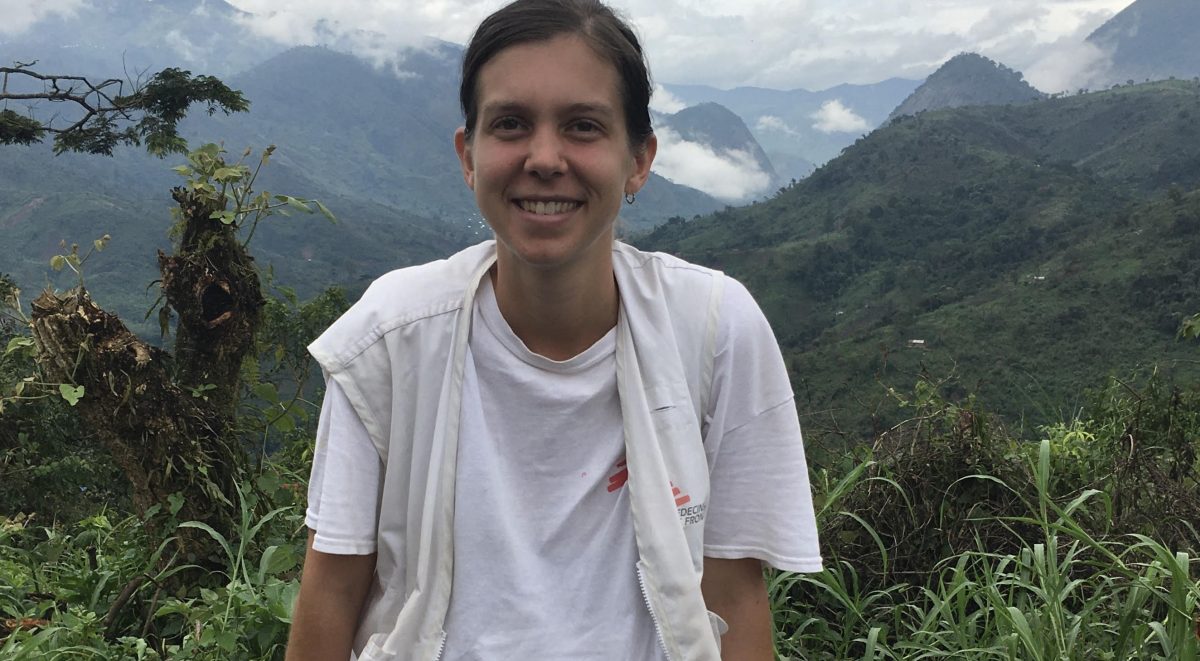
November 11th marks Remembrance Day, where we reflect on the impact of war and thank those who have served our country.
Thank you to the incredible dedication of nurses in our military in times of war and peace.
This story shares the perspective of a nurse, who–while not in the Canadian military–is serving those impacted by war, conflict, and natural disasters. We thank Denise for sharing her story and for her compassionate service to those who desperately need it.
– – – –
“In conflict settings, it’s not just direct conflict or wounds that kill people. It’s also the breakdown in access to health care.”
Registered Nurse, Denise Potvin, has seen both the difficult and the deeply rewarding ways her work changes lives in areas of conflict.
Denise works with Doctors Without Borders/Medecins Sans Frontieres (MSF), providing emergency medical services to people affected by conflict or natural disasters, and over her five years, has served in South Sudan, Democratic Republic of Congo, Yemen, Ethiopia, Angola, and is now stationed in northern Mozambique. Denise always knew, from first entering nursing education, that she would take her nursing skills into a global health setting.
While each MSF assignment has had varying challenges, most often, Denise works where terrain proves the largest barrier to care.
“In some cases, we walked for hours to reach communities for whom we were providing outreach services. The roads were nonexistent, and we could not reach them by motorbike. Community members would often carry women in labour on a stretcher down steep hills, or women would walk in labour through difficult terrain to reach a health centre. Many times, they would deliver at home or on the way.” Many of these pregnant women have no access to prenatal care, face complicated births at home, or risk a long walk through checkpoints and unsafe areas at night.
Access to electricity is also a common issue. Often, their hospitals are run by generators, which limits access to diagnostic tools and equipment. Denise described one instance where her team had one 10L oxygen machine that had to be prioritized between multiple patients.
“MSF tries to address all levels of care, from community and primary care to referral and access to hospital-level care,” Denise said. “Some places have difficult terrain, others precarious security situations, others lack infrastructure, others may have frequently moving populations due to conflict. In each country, the goal is always to find solutions to allow better access to care for the most vulnerable when they need it.”
From children with malaria, measles, and malnutrition, to a cholera treatment centre and a neonatology ward, Denise has treated and touched hundreds of lives. In Mozambique where she’s caring for patients in a mobile clinic, they see anywhere from 150 to 250 people per day before they need to pack up and head to a new site the next morning.
“The biggest satisfaction for me in this work is interacting with patients and their families,” Denise said. “I love seeing the impact our day-to-day activities have. It’s humbling to witness the resilience of the different populations we are working with.”
“It is also a huge privilege to work with so many dedicated health professionals from various backgrounds and experiences, to learn from each other, and be working towards the same goal, of providing the best care possible to the people most in need.”
The extreme disparity Denise witnesses in access to healthcare, and common mortalities from preventable causes has reinforced how valuable public health care and access to primary care is, as well as the power of the nursing profession in health overall.
She also emphasized that her work with MSF is truly multidisciplinary (lab technicians, midwives, psychologists, admin staff, and more allow them to reach so many patients), and how important that approach is in the delivery of healthcare.
“I think nursing advocacy needs to have a global health perspective,” said Denise, “especially in countries like Canada where the nursing profession has evolved and advanced so much in education, scope of practice, as well as research and advocacy. Nursing has such potential to globally impact health.”
We thank Denise for sharing her story, and for her compassionate service to those who so desperately need it.
